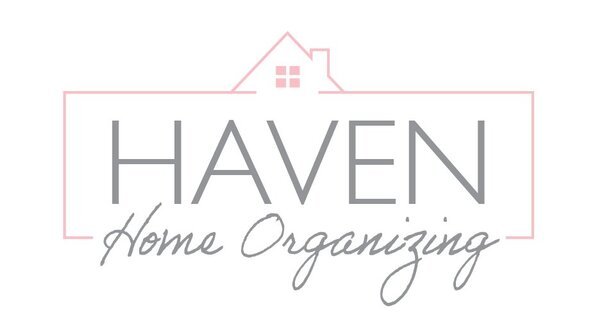Why Decluttering Matters
What Is Clutter?
The definition I like best for the word clutter is a confused multitude of things (Vocabulary.com). Clutter can be broken down into different types, such as these five identified by Inc.:
Physical
Digital
Mental
Emotional
Spiritual
The clutter I am referring to here is physical clutter, although digital clutter can often be just as pervasive.
The Cost of Clutter
25% of Americans have admitted that they have a clutter problem in their home according to Onedesk. So, what is this clutter problem actually “costing” families?
TIME
An Apartment Therapy article, based on a Pixie survey, revealed that due to lost items:
60% of people have been late to work or school (Onedesk points out that 1 in 9 women report being late to work because they misplaced their keys or other necessary items)
49% have missed appointments or meetings
22% have missed flights, trains, or bus rides
At least 20% of us misplace something important every week. The most misplaced item is the TV remote (more the 45% of us lose it at least once a week — 71% monthly), followed by phones, keys and glasses.
The National Association of Productivity & Organizing Professionals (NAPO) reports that we spend close to ONE YEAR looking for lost items over of our lifetime. That’s a whole lot of time and energy spent looking for stuff!
MONEY
Having lots of clutter costs families cold hard cash, too - an average of 10-15% of their Income according to NAPO. Here are a few of the reasons clutter is costing people money:
Replacements for missing & broken items
Duplicate purchases
Lost receipts and/or returns
Expired food
Misplaced parking tickets
Late library books
Overdue bills
Storage units
Many families have so much stuff it won’t all fit in their homes. According to SpareFoot, 11.1% of US households rent a storage unit. With an average cost of $110 per month, that’s over $1,300 a year!
New homes
Some are simply buying bigger houses. Over the last 75 years, the average number of people living in each US home fell, while the average size of new homes increased by more than double (2022 American Home Size Index). Yet research done by the Soap & Detergent Association found that disorganization (not lack of space) causes 80% of household clutter.
WELL-BEING
Living with clutter can also be detrimental to your health. A study monitored by the CDC found that 80% of most medical spending is stress-related compared to other issues. So, how does clutter impact stress?
An overwhelming amount of clutter, can actually “overwhelm” your system. 57% of women have said they have issues organizing their closets and that this has added to their overall stress levels when trying to find things they need. This is supported by a UCLA study that looked at the relationship between families and the number of items in their homes. An article in HouseLogic summed it up best by saying:
“There’s a link between high cortisol levels in female homeowners and a high density of household objects. The more stuff, the more stress women feel.”
This is important because high levels of cortisol can negatively impact your overall health.
There may also be a cognitive response. Read this quote from The Conversation about what clutter does to your brain and your body:
“Bursting cupboards and piles of paper stacked around the house may seem harmless enough. But research shows disorganisation and clutter have a cumulative effect on our brains. Our brains like order, and constant visual reminders of disorganisation drain our cognitive resources... and can reduce our working memory.”
Poor sleep habits are also more likely to plague those who live with clutter. A Better Homes & Gardens article highlights a CPAP study that revealed how habitually clean people were about twice as likely to get good quality sleep because it’s harder for our brains to shut off when surrounded by a mess.
“When we’re surrounded by messes, then everything feels chaotic and it’s harder for our brains to shut off. We’re biologically wired to produce chemicals to keep us awake if we’re surrounded by chaos.”
Diet can be affected as well. A Cornell University study looked at whether or not cluttered environments influence eating behavior and potentially drive people to snack more. The results showed that people are more likely to make poor eating choices when living in a cluttered space. They found that the more cluttered the environment was, the more people ate.
Overall our brains seem to be at their best when things are in order. A 2018 Motherly article explains it best, saying:
“The human body consists of thousands of integrated and interdependent biological and neurochemical systems, all organized... without which our bodies would disintegrate into chaos. It’s no wonder that the organization within our very own bodies naturally extends to the desire for order and tidiness in our homes”
Why People Don’t Declutter
One survey reported that 34% say they just don’t have the time. Other reasons people give for not decluttering, despite all of the benefits of doing so, include:
Guilt (especially over getting rid of gifts or expensive purchases)
Sentimental attachment
Fear (of being overwhelmed, of having to make too many decisions)
Concern that they will get rid of something they might need later (although 80% of the items we keep are never used according to NAPO)
Not knowing how or where to start
Advice to Get You Going
-
Tackle what you can see first (i.e. tabletops, counters, etc.) before digging into drawers and cabinets
-
Pick one small area to begin with so you will see immediate progress
-
Lay everything out so you can sort, purge, assign and containerize things before putting them back (this is based on the S.P.A.C.E. method created by Julie Morgenstern)
-
This way you won’t see it as an endless chore. Remember… It took a long time for the clutter to collect; it won’t dissipate in a day!
-
Let a friend or family member (or a Professional Organizer) assist
“If you’re going to declutter, don’t touch the item. Don’t pick it up. Have somebody else hold the pair of black pants and say, ‘Do you need this?’ Once you touch the item, you are less likely to get rid of it.”






